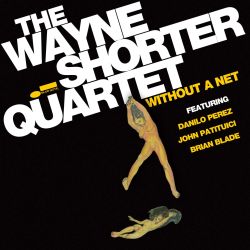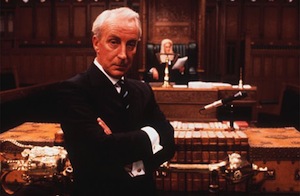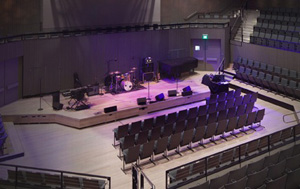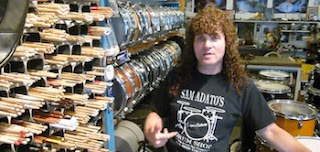The American TV industry's attempt to duplicate the success of many of England's greatest TV shows by remaking them has met with less than stellar results. "The Office" is about the best of the lot and a rare exception. NBC's "Prime Suspect", and ABC's "Life on Mars" didn't fare well. Hollywood's recent version of "State of Play", met a similar fate. CBS has ventured into the world of Sherlock Holmes with "Elementary", (even recasting Watson as a woman), but honestly, the BBC's "Sherlock" is the best contemporary TV Holmes made to date, and their "Adventures of Sherlock Holmes" with the late Jeremy Brett were masterpieces. Now comes Netflix's "House of Cards", a remake of the classic BBC series starring the late Ian Richardson as the evil Sir Francis Urquhart, aka "F.U."…
Now I love Kevin Spacey, and Robin Wright, but once you've seen the BBC's original trilogy including, "To Play the King" and "The Final Cut", you know it's going to be difficult to pull this off. The intrigue, the inner workings of Parliament, the uniquely British music and filming, the era in which it took place, and some of England's best actors and actresses made it a classic. Translating it to America, the White House, the State Department, and recreating the characters is simple enough, but are there no original stories out there to be told, or will we continue to see a trend of these films, films that are often shadows of the originals?
In the 1970s, we saw "Sanford and Son", a successful remake of "Steptoe and Son", a Scottish version of the junkyard, father/son team. England gave us James Bond 007, the Avengers, and the Saint; we joined in with the Man From U.N.C.L.E., I Spy, Mission Impossible and the Wild, Wild, West. Sci Fi? No worries, Britain had Doctor Who and Blake's 7; we had Star Trek, Space 1999 and Lost in Space. Those aforementioned TV shows became cult classics, but they weren't carbon copies of each other; the casting was unique, and the stories were written by some of the best Sci-Fi writers of the day, like Harlan Ellison, Ray Bradbury and Theodore Sturgeon.
Roger Moore, known as TV's Saint and later as 007, once portrayed Holmes in a dismal "Sherlock Holmes in New York". It's always a challenge bringing a character written for 1880s London to 1970s New York. The BBC's "Sherlock", is set in modern day London, with the well cast Benedict Cumberpatch as a thoroughly manic, high-tech genius and very, very well played. The stories are rather smartly, combinations of a variety of Holmes stories rolled into one. CBS's "Elementary" seems all wrong compared to the BBC version, it just doesn't translate. A much better version of the male/female-Holmes/Watson duo is Law & Order: Criminal Intent's Goren and Eames.
The original Prime Suspect, starring Dame Helen Mirren, was one of the BBC's best series, yet its American remake was cancelled after only a few episodes. Prime Suspect took place during the 1990's, and Mirren's character was based on a real-life, female DCI, one of the first ever promoted. The sexism was evident and a big part of the story. No doubt sexism still exists in modern day Manhattan, but it is not the Manhattan of the 1970s/Kojak era, where a newly promoted female Detective, may indeed have faced the kind of blatant sexism Mirren's character faced. 2012 just feels different to me.
Interestingly, one of the more successful reverse remakes is the BBC's "Law and Order: UK". A great cast, and duplicates all the original Law and Order stories and formula, complete with "Doink-doink". The British wisely, do very little remakes of American TV shows. Not many of them would translate very well either, yet we attempt to remake the British shows that seem to fail over and over again.
No doubt Spacey will do a good job as Frank/Francis Underwood/Urquhart as he "deceives, inveigles, obfuscates" everyone and everybody to achieve his aim, yet Ian Richardson is an unbelievable act to follow. In spite of the risk, how and why do they still continue to do it? According to USA Today, Netflix thinks they have a recipe that will work.
"Netflix has built a business streaming movies and TV repeats for $8 a month. Now it's hoping to rival pay-cable channels HBO, Showtime and Starz by offering up exclusive programming as a lure to keep customers paying those monthly fees. Cards alone marks a high-end, $100 million-plus investment, topping rival bids by HBO and AMC; Netflix is also reviving Fox's canceled cult comedy Arrested Development with 14 new episodes in May. The streaming service bets $100 million on original, high-profile programming. Will it be a winner?…"
Here's a bit of advice for Netflix. If your are going to compete with likes of "Game of Thrones", "Homeland", or any of the other shows HBO, Showtime, Starz, or any of the other cable companies have to offer, come up with new, original, interesting series, not remakes of classic British ones… The odds are really against you.
Thursday, January 31, 2013
Thursday, January 24, 2013
Wayne Shorter Returns to Blue Note "Without A Net"

"Shorter—who will be entering his 80th year in 2013—first recorded for Blue Note in 1959 as the precocious 26-year-old tenor saxophonist (and prolific composer) in Art Blakey’s Jazz Messengers, which brought him to the attention of label founder Alfred Lion who eventually signed him to his own recording deal. Shorter went on to make a spectacular run of classic albums for Blue Note between 1964-1970 including Night Dreamer, Juju, Speak No Evil, Adam’s Apple, Schizophrenia, and Super Nova during a period of time that also paralleled Shorter’s years with Miles Davis, first as a member of the trumpeter’s trailblazing quintet, and later as a part of Davis’ early fusion masterpieces.
“Wayne Shorter is one of the greatest musicians and composers of our time,” said Don Was, President of Blue Note Records. “At age 80, we witness him at the height of his powers and performing with one of the most incredible bands he's ever assembled. Although welcoming him back to Blue Note Records after 43 years is a romantic notion, Wayne's enduring appeal is rooted in his steadfast refusal to trade in such nostalgia. In fact, it is Mr. Shorter's determination to constantly move forward that makes his new album, Without A Net, such an essential listening experience.”
Reflecting upon his perpetual path of musical discovery, Shorter expounded that The challenge we as artists face today is to create a ‘singularity’ or an ‘event horizon’ so that as human beings we will break the cycle of ego dominated actions which through repetition keep us bound to stagnation which denies us entrance to the Portal of Life's Ultimate Adventure!
Without A Net is a 9-track musical thrill ride that consists of live recordings from the Wayne Shorter Quartet’s European tour in late 2011, the one exception being the 23-minute tone poem “Pegasus” which features the quartet with The Imani Winds recorded at Walt Disney Concert Hall in Los Angeles. The album features six new Shorter compositions, as well as new versions of his tunes “Orbits” (from Miles Davis’ Miles Smiles album) and “Plaza Real” (from the Weather Report album Procession). The quartet also reinvents the title song from the 1933 musical film Flying Down To Rio, which film buffs (such as Shorter) know as the first on-screen pairing of Fred Astaire and Ginger Rogers."
Friday, January 18, 2013
SFJazz Center Opens Next Week
San Francisco's newest venue, located on Franklin near City Hall, is the
SFJazz Center which opens January 23rd with "a star-filled line up
“consecrating” the stage of the Robert N. Miner Auditorium." Hosted by
Bill Cosby, the concert will include pianists McCoy Tyner and Chick
Corea, saxophonist and long time SFJazz Collective alum Joshua Redman,
legendary vibraphonist Bobby Hutcherson, Esperanza Spalding, Mary
Stallings, John Handy, Pete Escovedo, the SFJazz Collective, and the new
SFJazz Center Resident Artistic Directors Regina Carter, Bill Frisell,
Jason Moran, John Santos and Miguel Zenón amongst other special guests.
This one-time-only gathering of jazz stars will be at the center of the Opening Night celebration, which will include pre- and post-parties to celebrate the opening of the first stand-alone building for jazz in America. If you don't have tickets to this sold out show, fear not- NPR will be streaming the concert live WWOZ, WBGO and NPR Music will team up for a live radio and online video broadcast of the concert, (http://www.npr.org/event/music/169066093/live-from-sfjazz-center-opening).
According to NPR's website, "Thirty years after presenting its first concerts in San Francisco, the organization SFJAZZ has built a permanent home and performance venue. The SFJAZZ Center, conceived as the first stand-alone building for jazz in the U.S., opens with a star-studded concert on Wednesday, Jan. 23, 2013 at 11 p.m. ET/8 p.m. PT."
This one-time-only gathering of jazz stars will be at the center of the Opening Night celebration, which will include pre- and post-parties to celebrate the opening of the first stand-alone building for jazz in America. If you don't have tickets to this sold out show, fear not- NPR will be streaming the concert live WWOZ, WBGO and NPR Music will team up for a live radio and online video broadcast of the concert, (http://www.npr.org/event/music/169066093/live-from-sfjazz-center-opening).
According to NPR's website, "Thirty years after presenting its first concerts in San Francisco, the organization SFJAZZ has built a permanent home and performance venue. The SFJAZZ Center, conceived as the first stand-alone building for jazz in the U.S., opens with a star-studded concert on Wednesday, Jan. 23, 2013 at 11 p.m. ET/8 p.m. PT."
Friday, January 11, 2013
All Good Things... The Sad Closing of Sam Adato's Drum Shop
Last Christmas Eve saw the closing of yet another one of San Francisco's best loved musical emporiums, Sam Adato's Drum Shop at 9th and Folsom. Adato's Drum Shop was a mecca for Bay Area drummers and percussionists for nearly 20 years. I actually bought a beautiful rosewood, 6 piece Gretsch kit from Sam back in 2003, and countless more drum parts and pieces over the next 10 years. A master drummer, Adato arrived from Santa Cruz and opened amid the musical heyday of the '90s. Adato survived the arrival of Guitar Center; the sudden appearance of a new, trendy competitor that actually opened across the street from him a few years ago and just as quickly went out of business; and a car that actually crashed through his shop window that fortunately took out very little of his merchandise.
Adato cites the internet; ebay and Craig's List, as well as the skyrocketing rents and guerrilla meter maids as the culprits in his decision to relocate to Eugene, Oregon, and I don't doubt him. Adato also lamented that "Parents don't come in to buy their kids a new drum set for Christmas anymore."
Adato is something of a purist; a rocker equally at home with the drumming of Led Zeppelin's John Bonham, Carmine Appice of the famed Vanilla Fudge, or the jazz of the late, great Louie Bellson. When he wasn't at his shop, he'd be recording or gigging at the Warfield or the Fillmore with his band, The Bridge. You wouldn't find any electronics at Adato's drum shop, he was all acoustic percussion, all the time. Needed a part or repair? You went to Sam's. If he didn't have it, he'd get it for you.
Adato didn't mention it specifically, but there may be yet another culprit. For better or worse, we now live in a new, musical world of electronic V-drums, digital DJs, beat boxes and a host of other realities that compete for the hearts and minds of tomorrow's young percussionists and have changed the face of the modern drummer. Adato's recent closure is part of a trend that knows no abating.
Lecturing at a college in Sweden last year, retired drummer Bill Bruford, known for his work with the groups Yes, Genesis, King Crimson and his jazz combo Earthworks, spoke about his musical past, the challenges for the creative musician in today's market, as well as speculating on the future of the modern drummer. No stranger to the industry, its demands and limitations, Bruford noted the rise of technology; the ability to make an album in one's living room; the advent of the sampler, the laptop and the lonely world of "having an orchestra in a box" to work with. The music industry has changed; the good ol' days are gone and there will be no putting that genie back in the bottle.
There are still conservatories, "percussion institutes", and lessons one can take, even on line, but in a world where technology, video and audio also compete for the modern musician, the drum set is sadly becoming an option for fewer and fewer musicians. Nowadays you can buy software and pads, play through your stereo, pack up and head to the club, spinning your tunes and beats in real time. Coupled with the monetary reality of today's digital downloading world, the drummer, (already the butt of every band joke ever imagined), finds him or herself in increasingly smaller company.
Bruford hopes that the modern drummer will be something of a hybrid; part acoustic, part electric, sampling, looping and playing rhythms that challenge the listener more than the pedestrian 4/4 grooves that dominate the contemporary music scene today. He may well be right in the end and he should know; Bruford was part of the electronic drum revolution before it was fashionable or reliable. With reliability and quality an issue, he eschewed the electronics and returned to his first love- jazz.
I tend to agreed with Bruford; he cites the creative hotbed of Brooklyn, NY as the home of some the best young drummers to combine the hybrid approach, looping, sampling and yes, drumming in real time with a maturity beyond their years.
San Francisco's loss is Eugene, Oregon's gain. Ironically, Adato was able to benefit from the Bay Area's real estate market enough to find a new home and new shop there. Eugene, (home of the dreaded Oregon Ducks), is a fantastic college town that could provide the perfect setting for the next chapter in the life of one the best drummers and musical mentors San Francisco has ever had. Last month, the Board of Supervisors even honored Adato for his efforts at City Hall, and deservedly so.
They say all good things must come to an end… Here's to Sam Adato's new beginning, and to what Bruford called the "industry of human happiness"… Making spirits dance through music- and drumming.
Adato cites the internet; ebay and Craig's List, as well as the skyrocketing rents and guerrilla meter maids as the culprits in his decision to relocate to Eugene, Oregon, and I don't doubt him. Adato also lamented that "Parents don't come in to buy their kids a new drum set for Christmas anymore."
Adato is something of a purist; a rocker equally at home with the drumming of Led Zeppelin's John Bonham, Carmine Appice of the famed Vanilla Fudge, or the jazz of the late, great Louie Bellson. When he wasn't at his shop, he'd be recording or gigging at the Warfield or the Fillmore with his band, The Bridge. You wouldn't find any electronics at Adato's drum shop, he was all acoustic percussion, all the time. Needed a part or repair? You went to Sam's. If he didn't have it, he'd get it for you.
Adato didn't mention it specifically, but there may be yet another culprit. For better or worse, we now live in a new, musical world of electronic V-drums, digital DJs, beat boxes and a host of other realities that compete for the hearts and minds of tomorrow's young percussionists and have changed the face of the modern drummer. Adato's recent closure is part of a trend that knows no abating.
Lecturing at a college in Sweden last year, retired drummer Bill Bruford, known for his work with the groups Yes, Genesis, King Crimson and his jazz combo Earthworks, spoke about his musical past, the challenges for the creative musician in today's market, as well as speculating on the future of the modern drummer. No stranger to the industry, its demands and limitations, Bruford noted the rise of technology; the ability to make an album in one's living room; the advent of the sampler, the laptop and the lonely world of "having an orchestra in a box" to work with. The music industry has changed; the good ol' days are gone and there will be no putting that genie back in the bottle.
There are still conservatories, "percussion institutes", and lessons one can take, even on line, but in a world where technology, video and audio also compete for the modern musician, the drum set is sadly becoming an option for fewer and fewer musicians. Nowadays you can buy software and pads, play through your stereo, pack up and head to the club, spinning your tunes and beats in real time. Coupled with the monetary reality of today's digital downloading world, the drummer, (already the butt of every band joke ever imagined), finds him or herself in increasingly smaller company.
Bruford hopes that the modern drummer will be something of a hybrid; part acoustic, part electric, sampling, looping and playing rhythms that challenge the listener more than the pedestrian 4/4 grooves that dominate the contemporary music scene today. He may well be right in the end and he should know; Bruford was part of the electronic drum revolution before it was fashionable or reliable. With reliability and quality an issue, he eschewed the electronics and returned to his first love- jazz.
I tend to agreed with Bruford; he cites the creative hotbed of Brooklyn, NY as the home of some the best young drummers to combine the hybrid approach, looping, sampling and yes, drumming in real time with a maturity beyond their years.
San Francisco's loss is Eugene, Oregon's gain. Ironically, Adato was able to benefit from the Bay Area's real estate market enough to find a new home and new shop there. Eugene, (home of the dreaded Oregon Ducks), is a fantastic college town that could provide the perfect setting for the next chapter in the life of one the best drummers and musical mentors San Francisco has ever had. Last month, the Board of Supervisors even honored Adato for his efforts at City Hall, and deservedly so.
They say all good things must come to an end… Here's to Sam Adato's new beginning, and to what Bruford called the "industry of human happiness"… Making spirits dance through music- and drumming.
Subscribe to:
Posts (Atom)


